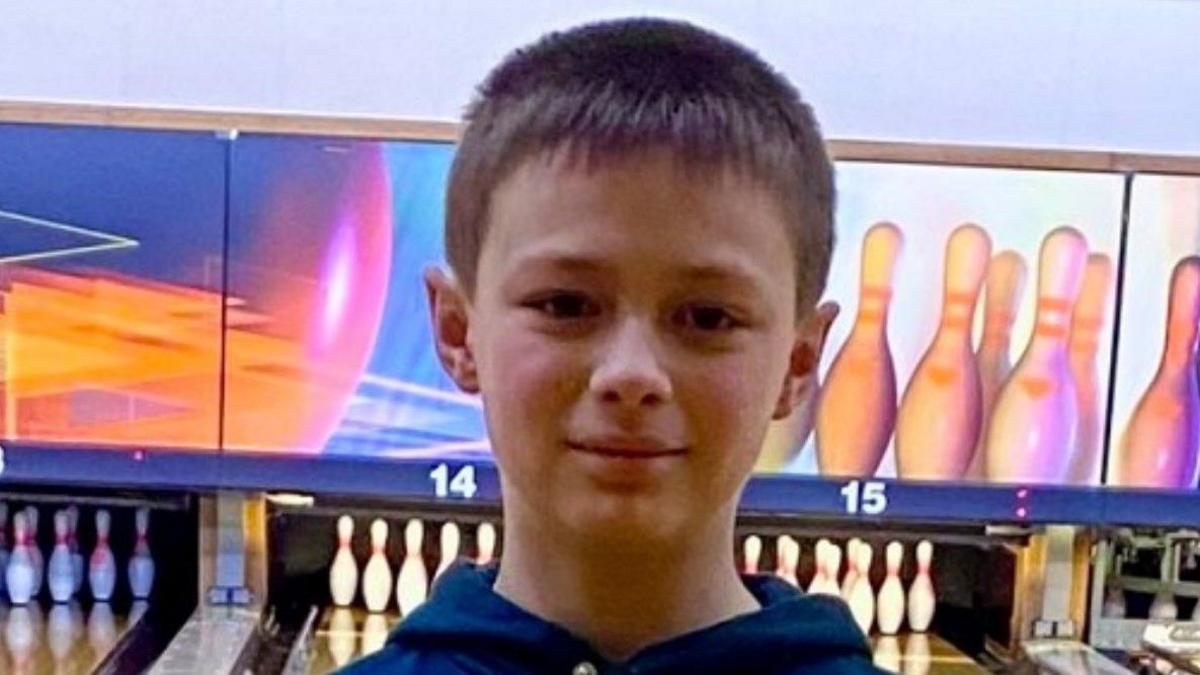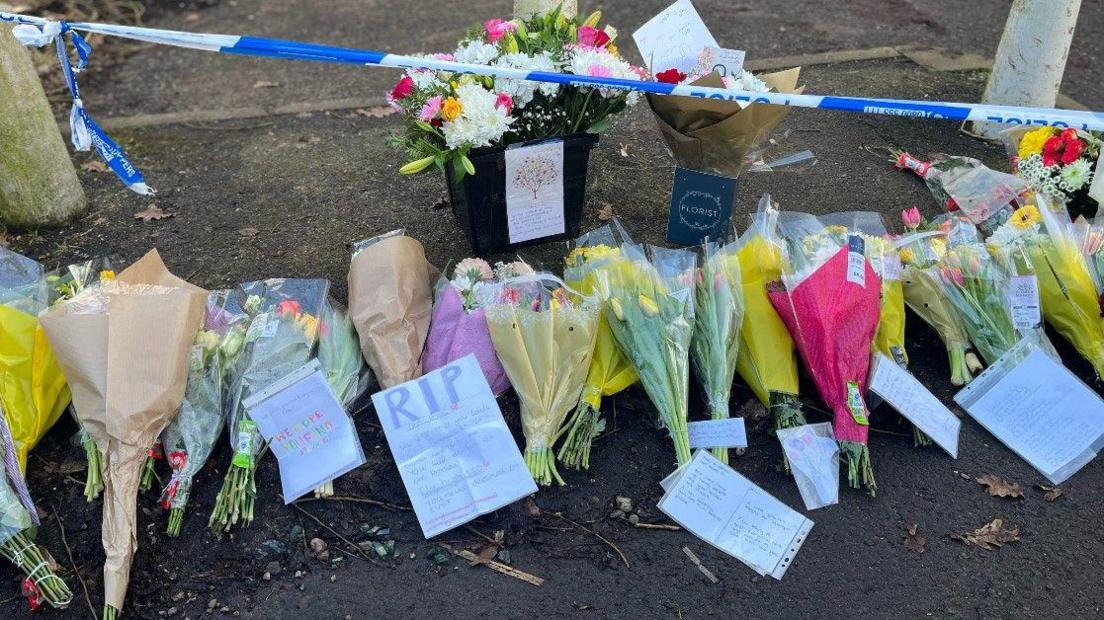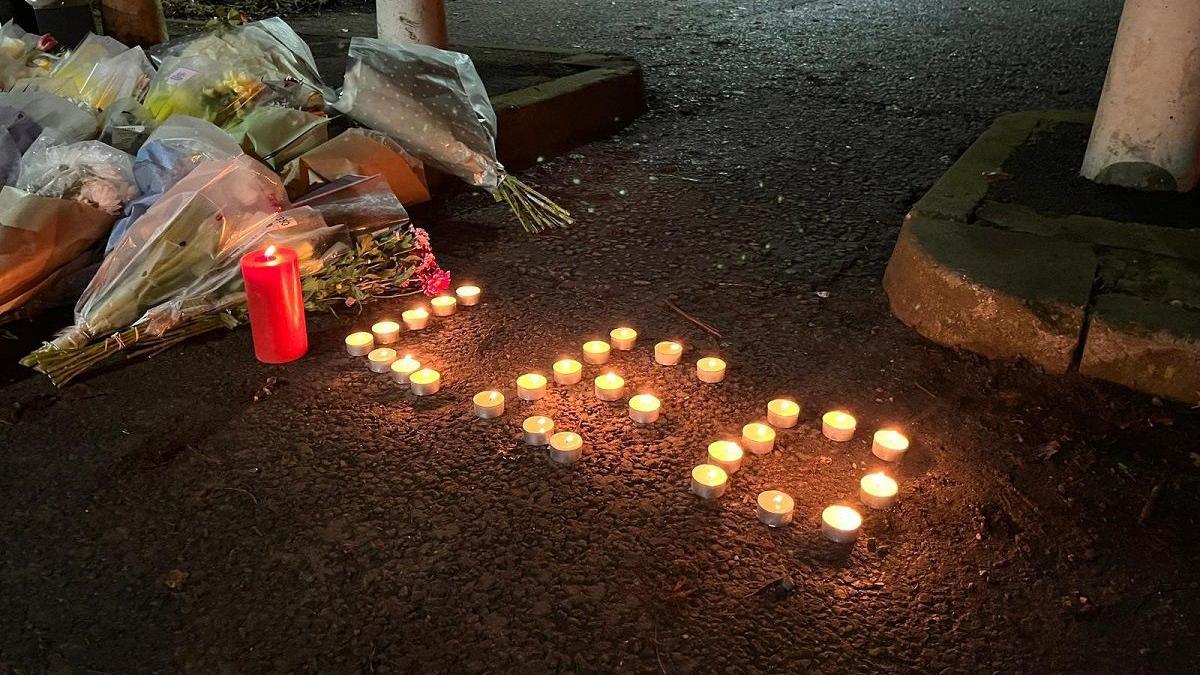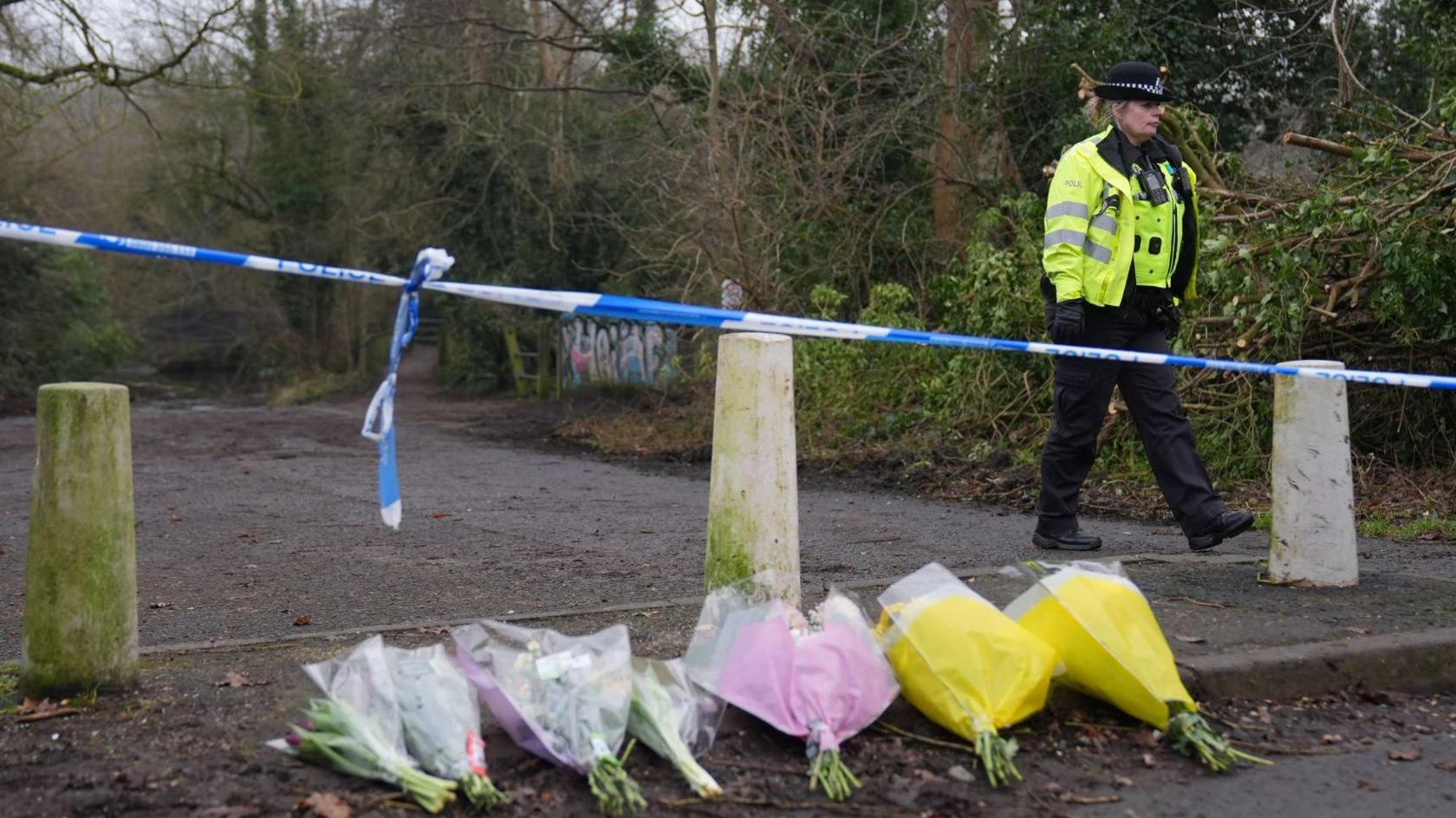Boy, 12, killed in stabbing was 'adored'

Leo's head teacher paid tribute to the "lovely and bright" youngster
- Published
A 12-year-old boy who was stabbed to death in Birmingham was "adored" by his friends and was "funny and sweet", his head teacher said.
Leo Ross was stabbed in the stomach and found near Scribers Lane in Hall Green at about 15:40 GMT on Tuesday and later died in hospital, West Midlands Police said.
He was a pupil at Christ Church C of E Secondary Academy and was a "lively and happy young man" with "many very good friends", executive head teacher Diane Henson added.
A 14-year-old boy was earlier arrested on suspicion of murder. Police said the teenager had also been arrested in connection with an unrelated assault on a woman in her 80s on 19 January.
Ms Henson said Leo was "just a lovely and bright member of the school community".
"We're supporting the children at school and are opening a book of condolence with the family's permission," she added.
The executive head teacher stated Leo had many good friends "who he absolutely adored and they adored him".
The family said he had been walking a 10-minute route home when the attack happened and described him as "funny, sweet and had not one aggressive bone in his body".

Messages left along with flowers at the scene of the stabbing said Leo was "loved by many people" and "our lives won't be the same without you"
Ch Supt Richard North described the stabbing as "an appalling and senseless attack".
"We are doing everything we can to support the loved ones of the young boy who lost his life in such an appalling way, but we know that nothing we say or do will diminish their agony," he added.
Drone footage shows the scene of the stabbing
Scribers Lane is a long and busy road, surrounded by houses, shops and local schools, in the suburb of Hall Green.
The attack is believed to have taken place near the railway bridge, which is next to Trittiford Mill Park.
Flowers were left at the scene along with written messages which included saying Leo was "loved by many people" and "our lives won't be the same without you".
Ch Supt North said: "Parents around the country will hear this news and be unable to comprehend the pain they must be feeling.
"Our hearts go out to the young boy's family today."
He urged people and the media not to speculate on the motive for the attack.
Ch Supt North added he would urge anyone who saw what happened or who had CCTV, mobile phone or dashcam footage from the area at the time to get in touch as soon as possible.
The West Midlands force said their officers would be carrying out patrols locally to try to reassure residents.
West Midlands Police has appealed for information as well as photo and video evidence
Knife crime figures released in July showed the West Midlands Police area had the highest rate of offences in England and Wales.
Alison Cope, whose son Joshua Ribera was murdered in a knife attack in Birmingham in 2013, told the BBC young people were "scared" of living in the West Midlands.
"They see the headlines of some of the horrific cases that we've seen almost every week now," she said.
Ms Cope, now a campaigner against youth violence, said the region's approach to tackling the problem was "not working" and it needed to be discussed in schools.
There have been several high-profile incidents involving teenagers in the last year.
In June, two 12-year-old boys were found guilty of murdering Shawn Seesahai with a machete in Wolverhampton.
In November, a 15-year-old boy was charged with murder after a 17-year-old boy was stabbed in Marston Green.
A 15-year-old boy was charged with attempted murder on 5 January, following the stabbing of a 14-year-old boy in Oldbury.

Candles were lit at the scene on Wednesday evening
In October, the region's police and crime commissioner, Simon Foster, said a knife crime task force led by the home secretary would help to "keep our communities safe".
He added: "We are not complacent and never will be."
John Cotton, leader of Birmingham City Council, described Tuesday's stabbing as "shocking and senseless" and said knife crime was a national crisis.
Sarah Coombes, Labour MP for West Bromwich, told the BBC police needed more money, knives needed to be taken off the streets and there needed to be early intervention.
"Often 14 or 15 is too late, often we need to be doing it more like eight years old, nine years old and really make them understand the horrific impact that carrying a knife has," she added.
Get in touch
Tell us which stories we should cover in Birmingham and the Black Country
Follow BBC Birmingham on BBC Sounds, Facebook, external, X, external and Instagram, external.
Related topics
- Published22 January
